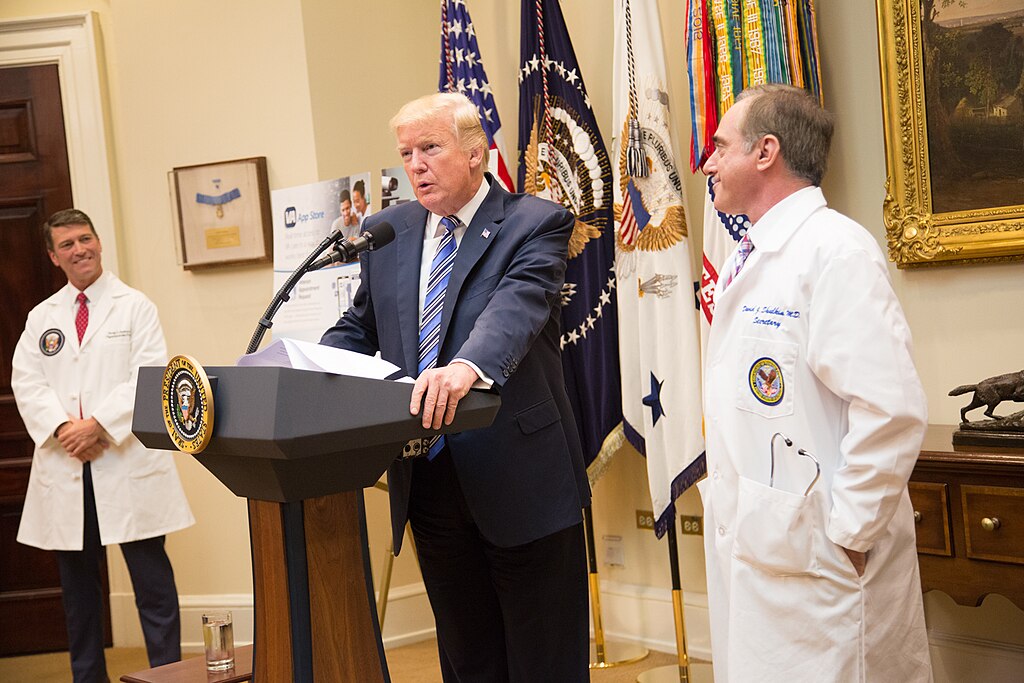Former President Donald Trump is reportedly considering a full U.S. withdrawal from the Paris climate agreement if re-elected in 2024, a move that could reshape America’s environmental policy and draw global criticism. Sources close to Trump’s campaign suggest that his decision stems from long-standing skepticism about the accord’s impact on American businesses and economic growth.
Trump’s History with the Paris Climate Agreement
During his presidency, Trump announced in 2017 that the U.S. would leave the Paris agreement, citing concerns that it disadvantaged American workers and industries. He formally began the withdrawal process, which was completed in 2020. However, President Joe Biden rejoined the accord on his first day in office, reaffirming U.S. commitment to reducing greenhouse gas emissions.
The Paris climate agreement, signed by nearly 200 countries, aims to limit global warming to well below 2 degrees Celsius compared to pre-industrial levels. Participants commit to reducing carbon emissions and working collaboratively to address climate change. Trump has consistently argued that the deal places an undue burden on the U.S., particularly in the energy and manufacturing sectors, while allowing countries like China to benefit.
Potential Impact of a U.S. Exit from the Climate Pact
If Trump follows through on plans to withdraw, experts warn it could weaken the global coalition addressing climate change. Analysts note that U.S. participation is vital for meeting the accord’s targets, as America is one of the world’s largest carbon emitters. An exit could embolden other countries to weaken their commitments, potentially reversing progress made in recent years.
Environmental groups have voiced strong opposition, warning that abandoning the pact could have severe environmental consequences. They argue that the U.S. must lead by example in combating climate change, especially given recent climate disasters linked to rising global temperatures.
Trump’s reported stance reflects his campaign’s broader focus on deregulation and energy independence, which includes support for fossil fuel industries. As the 2024 election approaches, his position on the Paris climate agreement may become a contentious issue, drawing stark contrasts with candidates prioritizing environmental policies.



 Middle East Conflict Escalates After Khamenei’s Death as U.S., Israel and Iran Exchange Strikes
Middle East Conflict Escalates After Khamenei’s Death as U.S., Israel and Iran Exchange Strikes  Israel Launches Fresh Strikes on Iran After Death of Supreme Leader Ayatollah Khamenei
Israel Launches Fresh Strikes on Iran After Death of Supreme Leader Ayatollah Khamenei  Trump Announces U.S. Strikes on Iran Navy as Conflict Escalates
Trump Announces U.S. Strikes on Iran Navy as Conflict Escalates  Does international law still matter? The strike on the girls’ school in Iran shows why we need it
Does international law still matter? The strike on the girls’ school in Iran shows why we need it  Israel Declares State of Emergency as Iran Launches Missile Attacks
Israel Declares State of Emergency as Iran Launches Missile Attacks  Trump Warns Iran as Gulf Conflict Disrupts Oil Markets and Global Trade
Trump Warns Iran as Gulf Conflict Disrupts Oil Markets and Global Trade  Marco Rubio to Brief Congress After U.S.-Israeli Strikes on Iran
Marco Rubio to Brief Congress After U.S.-Israeli Strikes on Iran  Macron Urges Emergency UN Security Council Meeting as US-Israel Strikes on Iran Escalate Middle East Tensions
Macron Urges Emergency UN Security Council Meeting as US-Israel Strikes on Iran Escalate Middle East Tensions  U.S.-Israel Strike on Iran Escalates Middle East Conflict, Trump Claims Khamenei Killed
U.S.-Israel Strike on Iran Escalates Middle East Conflict, Trump Claims Khamenei Killed  Iran Supreme Leader Ayatollah Ali Khamenei Killed in Israeli, U.S. Strikes: Reuters
Iran Supreme Leader Ayatollah Ali Khamenei Killed in Israeli, U.S. Strikes: Reuters  Failure of US-Iran talks was all-too predictable – but Trump could still have stuck with diplomacy over strikes
Failure of US-Iran talks was all-too predictable – but Trump could still have stuck with diplomacy over strikes  Australia Rules Out Military Involvement in Iran Conflict as Middle East Tensions Escalate
Australia Rules Out Military Involvement in Iran Conflict as Middle East Tensions Escalate  AI is already creeping into election campaigns. NZ’s rules aren’t ready
AI is already creeping into election campaigns. NZ’s rules aren’t ready  Suspected Drone Strike Hits RAF Akrotiri Base in Cyprus, Causing Limited Damage
Suspected Drone Strike Hits RAF Akrotiri Base in Cyprus, Causing Limited Damage  Netanyahu Suggests Iran’s Supreme Leader Khamenei May Have Been Killed in Israeli-U.S. Strikes
Netanyahu Suggests Iran’s Supreme Leader Khamenei May Have Been Killed in Israeli-U.S. Strikes  Zelenskiy Urges Change in Iran After U.S. and Israeli Strikes, Cites Drone Support for Russia
Zelenskiy Urges Change in Iran After U.S. and Israeli Strikes, Cites Drone Support for Russia  EU Urges Maximum Restraint in Iran Conflict Amid Fears of Regional Escalation and Oil Supply Disruption
EU Urges Maximum Restraint in Iran Conflict Amid Fears of Regional Escalation and Oil Supply Disruption 
































